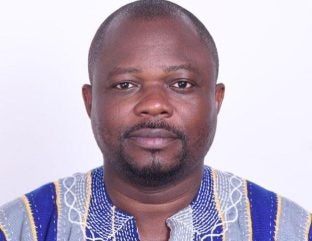
In an interview with The B&FT Online, Dr Robert Sogbadji, Deputy Director for Nuclear & Alternative Energy, explained Ghana’s nuclear plans. Ghana’s energy mix is currently Hydro, which is more than 34%, Gas thermal which more than 63% and solar of about 3.5%. Ghana has an electricity access rate of 88.7% with a target to reach 90% by the end of 2024.
“The percentage of gas thermal in the energy mix largely influences the cost electricity to the end users. Ghana electricity cost is one of the highest in the west African region. However, Ghana supplies electricity to its neighbouring countries such as Togo, Benin and Burkina Faso,” Sogbadji said. “This is due to the good reliability of Ghana power transmission grid. Ghana is looking forward to further diversify its energy mix with nuclear power and modern renewables such as wind, biofuel and wave energy.” He added: “Since Ghana has exhausted all its large hydro potentials, Ghana seeks nuclear and gas thermal power as the baseload to support the intermittent renewables.”
He said Ghana started its nuclear energy in the 1960s with the Soviet Union constructing the Ghana Atomic Energy Commission to train human resource capacity for the Ghana nuclear power programme. “This could not [be] materialised due to a coup d’etat in 1966. The nuclear programme was rejuvenated in 2008 after a series of … power crises which plagued the country every four years. The Ghana Nuclear Power Programme Organisation was established in 2012 to oversee the preparation of the roadmap and implement activities for the inclusion of nuclear energy into the energy mix. The nuclear regulatory authority of Ghana was also established in 2016 to regulate the activities leading to the safe introduction of nuclear power into the generation mix. The Owner-Operator organisation, Nuclear Power Ghana Ltd has also been established to build capacity to operate the first nuclear power plant in Ghana.”
Ghana has identified two sites to accommodate its first nuclear power plant and is ready to identify a vendor country and technology by the end of 2024, he noted. “Russia, China, France, United States of America and Korea are the leading contenders of the vendor identification. Ghana is currently in Phase 2 of 3 in the nuclear journey in accordance to the IAEA milestones. The Government of Ghana nuclear power programme is guided by the IAEA 19 infrastructure issues which needs to be addressed by newcomer countries. So I will say Ghana is working steadily with its vendor partners with considerations on favourable financial terms and technology.”
Sogbadji explained that the Cabinet and the President will decide the vendor country based on advice from the Ministry of Energy. Due to the size of the project funding, the project implementation also has to go to Parliament for approval as well. “Since the Ghana nuclear power programme is being implemented with guidance from the IAEA, nuclear safety and security are key and part of assessment in every stage of the programme, hence the early establishment of the Nuclear Regulatory Authority of Ghana at the Phase 1 stage of the programme, even though IAEA recommends it’s established in Phase 2. This shows Ghana’s commitment to address issues of safety and security in the country.”
Meanwhile, the Association of Ghana Industries (AGI), the umbrella body of manufacturing companies in the country, has endorsed adding nuclear power to Ghana’s energy mix. However, AGI called on the government to ensure a stable macroeconomic environment to enable industries participate fully, and benefit from the country’s nuclear power programme.
Nuclear power is expected to ensure energy security, help meet electricity generation demands, contribute to low carbon emission, and support Ghana’s industrialisation agenda, while creating jobs in the value chain. AGI CEO Seth Twum-Akwaboah, in an exclusive interview with the Ghana News Agency, explained that with hydro continually dwindling and thermal being expensive and [with] recurrent power fluctuations, it was important for Ghana to have a secure, reliable, affordable, green and clean baseload, which nuclear energy could provide.
“Today, industries are struggling in several areas; for the nuclear power project, if we don’t have the capacity to acquire new technology and advance in ICT [Information and communication technology] and new machines, then, your capacity to even partner is weakened,” he said. He added that it was important to make industries ready in terms of technology, funding, and capacity building.
He said the government’s support in creating a conducive environment was crucial because industries had no control over external factors, including inflationary pressures, high cost of borrowing, and electricity. “Those are the critical areas that the government must work on. There are some external factors, but whatever it is, efforts must be made to stabilise it in a way that encourages investment with a good return on it.”


